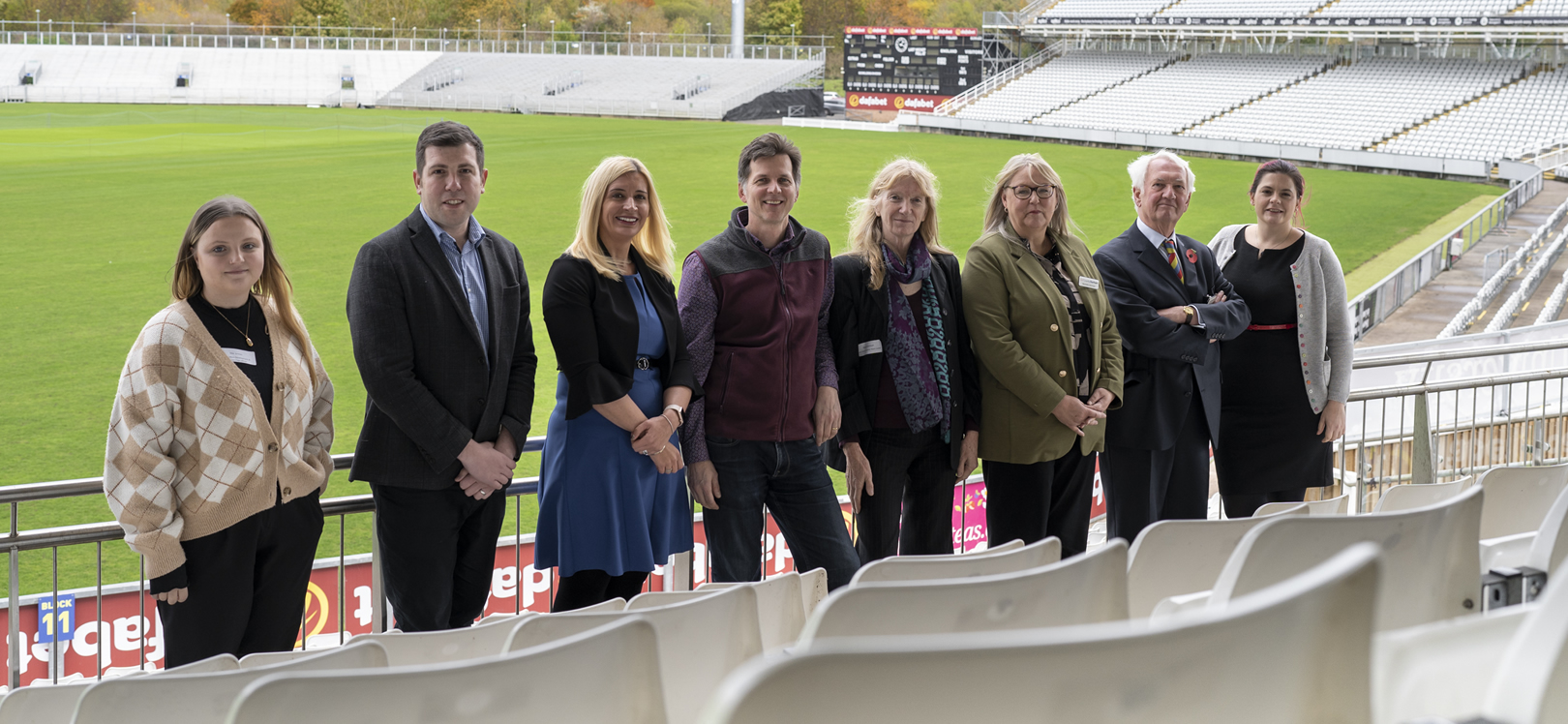Press Release
Sustainability takes centre stage at Visit County Durham’s autumn conference
Tourism organisations from across Durham came together this week to explore how sustainable practices can not only make a difference to the planet but support the sector to grow.
Destination Management Organisation Visit County Durham chose sustainability as the theme of its autumn conference in recognition of its ever-growing importance, both in terms of tackling global warming and supporting businesses through the cost-of-living crisis and beyond.
Tourism organisations large and small – from independent B&B owners to major attractions, hotel chains and industry suppliers – attended the event at Durham County Cricket Club.
It was an opportunity for the organisations to share ideas, highlight barriers and identify ways to reap the rewards of adopting green practices.
Michelle Gorman, managing director of Visit County Durham, said: “It’s been a challenging few years for the visitor economy. The pandemic and the cost-of-living crisis have hit tourism businesses incredibly hard and, in the wake of such challenges, it’s understandable that sustainability may not top the list of businesses’ priorities. Our conference was about showing businesses that adopting greener practices can help them to overcome these challenges by reducing their energy bills, enhancing their offer and attracting new, eco-conscious visitors.
“It’s about supporting businesses, celebrating the amazing work already going on in the county and continuing our journey to become a sustainable destination.”
Scott MacLean, managing director of Green Tourism, an internationally respected accreditation programme and sustainable support provider, was among the keynote speakers at the conference.
Scott explained how sustainability can give tourism businesses a competitive edge, with 81 per cent of global travellers surveyed by Booking.com identifying it as an important factor when planning a holiday. Fifty-seven per cent said they would feel better staying somewhere with sustainable accreditation, while 41 per cent of those who made a booking said they chose it to help reduce their impact on the environment.
Scott said: “It’s important we all do what we can to protect the planet, both at home and at work. However, I think many tourism businesses don’t always realise that sustainability can also support growth by helping them to stand out from their competitors. One of Green Tourism’s major objectives is to help businesses bring their sustainable practices to life for their customers. Whether that be through showcasing the local produce on their menus or celebrating the steps they are taking on social media and their website.
“It was a pleasure to speak at the conference and to see the importance Visit County Durham places on sustainability.”
As Durham County Council’s tourism service, Visit County Durham’s commitment to sustainability reflects the local authority’s wider work to protect the environment and become carbon neutral by 2045.
Ellie Grimes, from the council’s low carbon team, shared practical advice about how businesses can reduce their carbon footprint and their energy bills at a time when costs are soaring.
Lucy Wearne, Visit County Durham’s project and research manager, also spoke about the importance of taking steps now, explaining how the tourism sector is highly vulnerable to climate change while also contributing to it.
Both presentations sparked lively discussions about actions that are needed, and how to overcome the challenges faced – from improving public transport to continuing to grow the county’s network of electric vehicle charging points.
The conference also featured presentations from the conference sponsors, Liza Johnson of Tea Enthusiasts and Bernhard Nausner, of Durham Coffee. Both businesses are committed to sustainable practices and supporting the communities from which they source their ingredients.
Ivor Stolliday, Chair of Visit County Durham Limited, who opened and closed the conference, said: “The questions of sustainability and protecting our environment are, of course, among the most pressing issues of our time. For businesses serving the visitor economy, the challenge is to do better environmentally while continuing to grow. This conference showed how these twin objectives may be met and how we can meet them together.”


